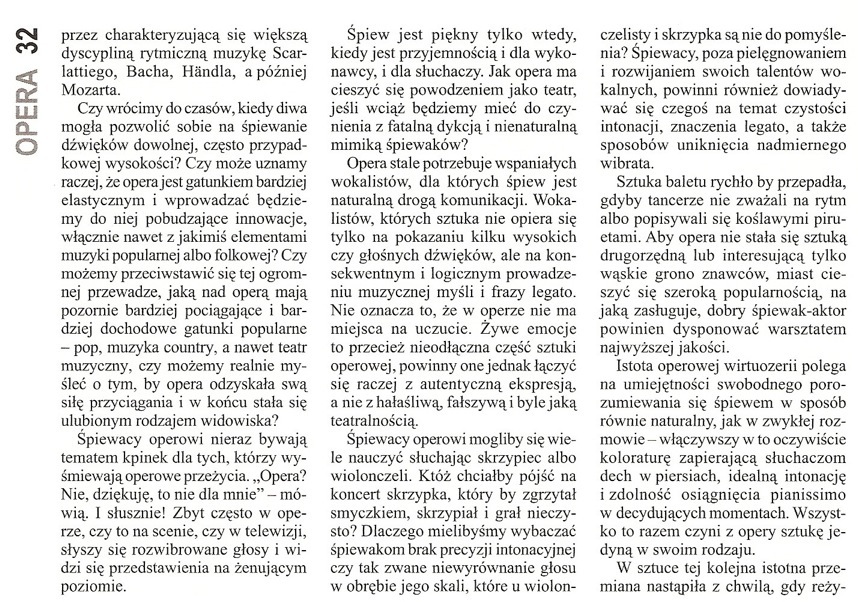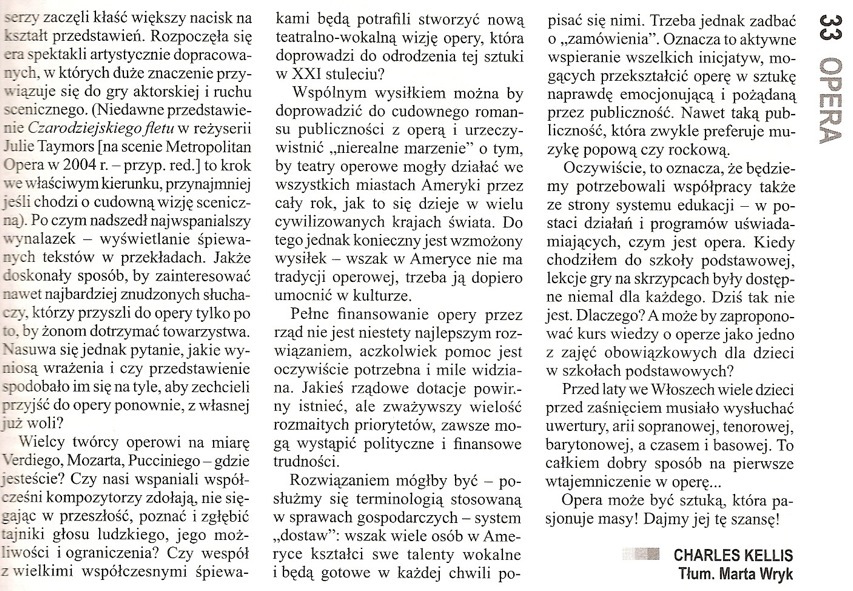CHARLES KELLIS

TWOJA MUZA (December) 2012/English


L'ELISIR D'AMORE
by Charles Kellis
Devoid of any of the dramatically infused blood and guts tragedy of operatic intrigue--- "L'elisir d'amore" presents a fairy tale libretto, embracing a gracefully homogenized plot of passion, love and deception, with a happy ending.
Here we have a simple but endearing country bumpkin, who is hopelessly addicted to winning the affections of --who else? Of course, Adina, the most beautiful and wealthy girl in the village, portrayed vividly by Anna Netrebko. She is first seen reading a story to the village girls about a magic potion that Tristan drank, enabling him to win the heart of Isolde. This is introduced as a kind of sub-plot, foretelling the comedic interaction of the Elixir. (In 1832 Wagner had not yet even thought about composing "Tristan")
Adina proclaims that her fickle nature cannot allow her to be interested in being with one man alone, and tries to encourage the love sick, Nemorino --brilliantly sung by the tenor M. Polenzani--to better direct his attentions elsewhere. Discouraged, Nemorino naively becomes easy prey for the crafty Dr. Dulcamara ---portrayed with penetrating imagination by the baritone Ambrogio Maestri--- who is the 19th century equivalent of an early American, westward expansion, snake oil salesman. Nemorino becomes convinced that the doctor's elixir will produce the miracle he would need in order to win Adina to be his bride.The plot thickens--as here comes Belcore, Mariucz Kwiczien, as the flamboyant Seargent at arms, deciding that Adina should belong to him. The story unfolds as Nemorino, emboldened by Dulcamara's fake elixir ---unleashing a new-found confidence in himself--- is the final winner. He also discovers that he has inherited a fortune from his dead uncle and "all lived happily ever after". Did I say "fairy tale"?
This new --opening of the Metropolitan Opera season premiere production--- once again featured the now well established diva, the wonderful Anna Netrebko as Adina who fluently displayed all her unusual abilities that made her the queen of our modern operatic world today. She is the epitome of what a great star should be. A fine actress filled with energy and nuance, she possesses a beautiful warm voice that can project fully on any operatic stage with authority and she uses her instrument effectively to convey the message of her character. She is not perfect, but neither was the amazing Maria Callas. To wish for perfection in an opera singer is an unlikely reality. In her famous aria "Prendi", her usual all embracing, lustrous sound came projecting through the entire huge Met opera House with thrilling intensity. What was lacking, however, was the inability to keep everything completely organized in terms of accuracy of pitch, with some upper register stabbing ---instead of a steady stream of legato--- and her inability to negotiate some of her more rapid passages with the kind of virtuosity I would prefer to expect from her. Anna Netrebko, nonetheless, still dominated the show with her portrayal that was an overall winning performance.
We can still wish for a singer who can successfully emulate a violin or a cello, but we vocalists have an instrument that requires a great deal of intuition. We cannot see the strings of a cello or the keys of a pianoforte on which we can put our fingers. We must rely on balanced judgement with an abundance of imagination, together with one more looming fatal Obstacle --The words--. Besides being musical with lovely sound, we must also deal with the text and the coordination of the breath to make it theatrically or poetically inspiring. The perfect technique would ideally be the magical ability to coordinate everything together into one divine design. Since the human voice is a most difficult instrument to develop fully, we have to be happy when we even get a good approximation of what vocal perfection allows.
After a rather brisk overture, the conductor, Mauricio Benini managed to keep the singers musically intact, allowing them some freedom where it could be dramatically effective and kept the fine Met chorus on their toes with accuracy and precision. Both the genuine, historically more accurately imagined sets by Micheal Yeargans --together with the appropriately lovely, colorful costumes by Catherine Zuber-- were certainly a visually creative improvement on last year's almost cartoonish offering.
Having the distinction of being the only holdover from the production of last spring's "L'elisire", replaced by Bartlett Scher's more imaginatively integrated contribution, including it's greatly improved sets and costumes, Mariuz Kwiczien was the Seargent Belcore for both productions. Regardless, that Belcore is not a hugely grateful role for a baritone with very few moments of vocal bravura and with his only aria coming rather close to the beginning of the opera, Kwitczien --notwithstanding some of Sher's concept of a little too much unnecessary roughness-- was still once again able to display his fine acting ability and to show off his sturdy, ringing voice to good advantage. I greatly look forward to hearing him in next year's opening premiere at the Met season premiere of "Eugene Ognegin" ---again with Netrebko, including Bezawa, where he should shine with all of his great thespian and vocal abilities being more fully exploited.
I must confess that hearing Polenzani as Nemorino, made me enjoy his singing and appreciate his beautiful voice more than ever before. Either this is a great role for him or he has improved since I last heard him. Although the sheer beauty of the well conceived, beautiful aria itself is one of the more popularly known in all of opera, Polenzani's rendition of "Una furtiva lagrima" exploded the greatest ovation of the evening. It was beautifully nuanced with some fine piano singing especially with the last "si puo morir". He brought a mature understanding of how to make the crowd anticipate a magical moment with his keen sense of ---timing the pauses--- with elegance.
Polenzani also proved himself to be quite a good actor, in keeping with the stage direction of Bartlett Scher which ---despite some violent pushing and shoving, even erupting into a feigned sword fight between Belcore and Adina--- was still well
conceived, including some endearing moments when the villagers were anointing themselves with the magical fake Elixir ( really Bordeaux), culminating in some of the nuns hiding it in their baskets for future use. There were also many other touches both of comedy and frivolity adding to a pleasureful evening at the Opera.
The surprise of the evening, however, was the baritone, Ambroggio Maestri who was an outstanding Dulcamare -- comically creating the fake doctor with the sobriety and Decor befitting a doctor's dignity that only made him more credible as a quack. Despite the basso-buffo role, his voice soared into an upper range that was surprisingly well connected and made me wanting to hear him again, in a more vocally appealing role.
This Donizetti opera, despite any possible misgivings, was a delight both visually
and aurally, giving credence to the saying that ---Opera can have charms to potentially sooth the wildly raging pop culture tradition.
FINE





